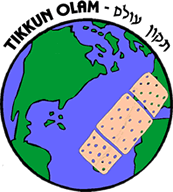Our guest blogger
this week, Dr Hilton Immerman OAM, is CEO of The Shalom Institute, the
organisation behind the Sydney Jewish Writers’ Festival. He reflects on Hugh
Mackay’s latest book, The Good Life,
and its strong resonance with Jewish principles. We’ll be exploring this
further in Hugh Mackay’s session, in conversation with Rabbi Michoel Gourarie,
on ‘What makes a life worth living? at 6.00-7.00pm on Sunday 1 September.
 |
| Hugh Mackay |
Social commentator Hugh Mackay is an important voice in Australian society. It is not just how prolific he is (with 14 books to his name, nine in the field of social psychology and ethics and five novels) but his ability to illuminate our lives and the human condition. In The Good Life, Mackay asks and answers the ultimate question: What makes a life worth living?
His conclusion, drawn from his research, is provocative and
passionately argued. A good life is not measured by security, wealth, status,
achievement or levels of happiness.
Mackay says,
…the more you examine our Utopian fantasies and our energetic attempts
to turn them into reality, the more you wonder if the very things we’re so
desperate to acquire as symbols of this imagined good life may be insulating us
from deeper and more enduring satisfactions, fuelling our dreams while limiting
our vision, encouraging us to settle for the most trivial and fleeting meanings
of ‘good’.
In fact, a good life is determined by our capacity for
selflessness and our willingness to connect with those around us in a
meaningful and useful way.
 |
| Source: www.msdietforwomen.com |
Reading Mackay’s findings, I was reminded again and again of Jewish wisdom which addresses these same issues. Developed thousands of years ago, these ideas jump from the pages of ancient Jewish texts but, as Mackay’s research confirms, remains as timeless and universal as ever.
There is:
- The obligation to engage in Tikkun Olam – to help heal/repair/mend the world.
- The precept from Pirke Avot (2:16), Ethics of the Fathers: “You are not required to finish the work. Neither are you free to desist therefrom.”
- Also from Pirke Avot (2:12): “Let your friend’s property be as precious to you as your own… and let all your deeds be done in the name of Heaven.”
- And Pirke Avot ( 4:1) again: “Who is wise? The one who learns from all people… Who is mighty? The one who subdues the evil inclination… Who is rich? The one who rejoices in his portion…. Who is honoured? The one who honours other human beings….”
- The great sage Hillel who said, “That which is hateful unto you do not do to your neighbour. This is the whole of the Torah, The rest is commentary. Go forth and study.” As we well know, this became the basis of ‘The Golden Rule’.
- Again from Hillel, “If I am not for myself, who will be for me? And if I am only for myself, what am I? And if not now, when?”

We should put all the trappings and embellishments of our
material lives into perspective because the bottom line, as Mackay concludes,
is:
…that insistent message, echoing
through the philosophical traditions of East and West: treat other people the
way you’d like to be treated. The basic message never alters, whether your
moral heritage is Socratic, Jewish, Christian, Islamic, Buddhist, humanistic or
anything in between.
You can view Hugh Mackay’s interview with
Jane Hutcheon on ABC TV
One Plus One back in May.
And make sure you see him at A Day at the Sydney Jewish
Writers’ Festival, in conversation with Rabbi Michoel Gourarie, on ‘What makes a life worth living?' at 6.00-7.00pm on Sunday 1 September.



No comments:
Post a Comment